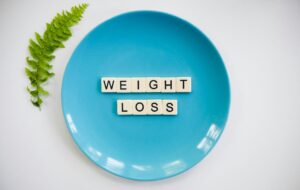Macronutrients are the nutrients that the body needs in larger amounts to provide the body with energy. They are also the key players in maintaining health, growth, and bodily functions.
In this article, we will delve into the significance of diet for weight loss and explore how to harness the power of the three main groups of macronutrients: carbohydrates, proteins, and fats—to achieve successful and sustainable weight loss.
In a world increasingly obsessed with appearances and well-being, the quest for effective weight loss strategies has never been more prevalent. While exercise certainly plays a significant role in achieving a healthy weight, it is often said that abs are made in the kitchen. This assertion highlights the pivotal importance of diet in the weight loss journey.
The Importance of Diet in Weight Loss
When it comes to shedding those extra pounds, diet is undeniably the number one factor. Exercise can help burn calories and build muscle, but it is dietary choices that primarily determine whether one gains, loses, or maintains weight. The fundamental principle underlying weight loss is a caloric deficit, wherein you consume fewer calories than your body expends. This deficit prompts your body to tap into its energy reserves (stored as fat) for fuel, ultimately leading to weight loss.
However, not all calories are created equal, and this is where macronutrients come into play. They not only contribute calories but also play distinct roles in regulating hunger, metabolism, and overall health.
Carbs
Carbohydrates are the body’s primary source of energy. When consumed, they are broken down into glucose, which fuels various bodily functions and physical activities. While some popular diets advocate for low-carb or no-carb approaches, carbohydrates are not the enemy. In fact, they are essential for weight loss success.
Complex carbohydrates, found in foods like whole grains, fruits, and vegetables, provide sustained energy and promote feelings of fullness. This helps control appetite and reduces the likelihood of overeating. Additionally, they support physical activity, enabling you to burn more calories during workouts.
Proteins
Proteins are the building blocks of life and play a crucial role in weight loss. They are responsible for repairing and building muscle tissue, which is essential for maintaining a healthy metabolism. When you lose weight, it’s not just fat that gets burned; muscle loss can occur as well. A high-protein diet helps preserve lean muscle mass during weight loss.
Furthermore, proteins have a high satiety value, meaning they keep you feeling full for longer periods. This reduces the urge to snack on calorie-dense foods, aiding in calorie control. Incorporating lean sources of protein such as chicken, fish, tofu, and legumes into your diet can be instrumental in achieving your weight loss goals.
Fats
Fats have long been misunderstood and vilified in the context of weight loss. However, not all fats are harmful, and some are even beneficial. Dietary fats serve several crucial functions in the body, including supporting the absorption of fat-soluble vitamins (A, D, E, and K) and maintaining healthy cell membranes.
Healthy fats, such as those found in avocados, nuts, seeds, and fatty fish like salmon, provide a feeling of satiety and fullness. This can help control overall calorie intake by reducing cravings for sugary or high-calorie snacks. While fats are calorie-dense, they can be a valuable ally in your weight loss journey when consumed in moderation.
Balancing Macronutrients for Effective Weight Loss
Now that we understand the individual roles of carbohydrates, proteins, and fats, let’s explore how to leverage them effectively in your diet for weight loss success.
- Balanced Macronutrient Ratios: The key to a successful weight loss diet is balance. Aim for a diet that includes all three macronutrients in appropriate proportions. A balanced diet typically consists of about 45-65% carbohydrates, 10-35% protein, and 20-35% fat, but these ratios can vary based on individual preferences and dietary restrictions.
- Portion Control: It’s not just about what you eat but also how much you eat. Pay attention to portion sizes to ensure you are in a caloric deficit. Tracking your food intake can help you stay on target.
- Choose Whole Foods: Opt for whole, unprocessed foods as much as possible. These foods are not only more nutrient-dense but also tend to be more filling, helping you control your calorie intake naturally.
- Stay Hydrated: Water is often overlooked but is essential for a well-functioning metabolism. Sometimes, thirst is mistaken for hunger, leading to unnecessary snacking. Drinking enough water can help curb this impulse.
- Customize to Your Needs: Everyone’s body is different, and what works for one person may not work for another. Experiment with different macronutrient ratios to find what suits you best in terms of satiety, energy levels, and weight loss progress.
Conclusion
In the pursuit of weight loss, diet is an indispensable pillar, and understanding the role of macronutrients is pivotal for success. Carbohydrates provide energy, proteins preserve muscle mass, and fats offer satiety. A balanced diet that incorporates these macronutrients in appropriate proportions is the key to effective and sustainable weight loss.
Ultimately, the journey to a healthier weight is about making informed choices, being mindful of your eating habits, and maintaining consistency. Remember that weight loss is not solely about shedding pounds; it’s about improving your overall health and well-being. By harnessing the power of macronutrients and adopting a holistic approach to nutrition, you can achieve your weight loss goals and embark on a path to a healthier, happier you.







